We all see those posts on chat boards about, “My phone doesn’t ring, I’m desperate, what should I do?” Even those of you who have been in business for a few years have those dry spells don’t you? So, what do you do? You don’t throw a gazillion dollars into SEO marketing, get a new website or Read more
HVAC

We all see those posts on chat boards about, “My phone doesn’t ring, I’m desperate, what should I do?” Even those of you who have been in business for a few years have those dry spells don’t you? So, what do you do? You don’t throw a gazillion dollars into SEO marketing, get a new website or get a new Facebook page. The reason all that doesn’t help is because you run out of money before it can start to work. Statistics say that you have to see an ad seven to 35 times before you call for the product or service. That’s why you see the same commercials over and over on TV. But who can afford that?
Marketing and advertising are good, of course. You need your name out there. So how do you get business fast? You must understand that we are in a very different situation today than a lot of us grew up with. Here’s what’s different now:
- Customers in most of the USA only want to know three things:
- Will you answer the phone?
- Will you show up?
- Will you actually do the work if I say yes?
- It’s so hard to get a contractor to do even one of those things, when 30 years ago it was a given that all three would take place. It’s not about money anymore, it’s about finding someone to do the work. As long as your price isn’t crazy, you should get the job. The number of actual companies with call takers, dispatchers, managers and service techs is closer to 10% now, compared with 80% that was the norm 30 years ago. But Facebook advertising makes the one-truck guy often look like the big company. That means the technician is trying to fix your equipment, while taking calls for three more service jobs. Not only is that not professional, it means your equipment is not getting his full attention. He is going to do a quick fix and likely still charge you as if he actually tested it completely before closing it up.
- The companies that do have management staff are often only concerned with sales numbers. This means they are pushing the techs to sell sell sell and get done fast. This has been the worst thing for the service industry, and it is a big reason manufacturers are going full steam into DIY equipment, like mini-splits.
- And here is one of the toughest changes. When you don’t have a part for your customer, who’s fault is it? Today, it’s the fault of a system that has some holes in it. Here’s an example. Yesterday I got a hankering for a peach iced tea, so I stopped into one of those gas stations with the huge convenience store. Their choices were massive, but there was no Snapple Peach Tea. I finally chose some other brand of tea, but not peach. When the only cashier in this huge store finally showed up, I asked her if they normally carry Snapple products. She pointed to a cooler that was mostly empty. “That’s the Snapple area, but the distributor can’t find any drivers so we have to wait.” Imagine that, a distributor who can’t get products delivered to them because somewhere out there a bunch of people just don’t want to work. These are really different times.
So how do you get work today when your phones won’t ring?
In this economy the customers are desperate, waiting days and sometimes weeks to find a skilled tradesman. They are tired of unanswered phones, broken promises, and time wasted waiting for someone to show up. So, here’s the fastest way to get business when you need it today. Get on the telephone – pole. Yes, staple your message on telephone poles in neighborhoods you want to work in. Place yard signs on corners going into neighborhoods you want to work in. Your message should be simple, because it is for the frustrated people who can’t get an HVAC guy or plumber to call them back.
“We Fix Air Conditioning”
Call (number)
Simple as that.
Your yard sign can be prettier with your logo, but make sure the phone number is big. Why does it work? Because they see it seven to 35 times. And they see it when they need someone right now. So, they call.
The beginning of friendship marketing is “Get business IN the neighborhood that you want to work in!”
Now, once you start getting work and you like the neighborhood, then get something you can set on the driveway on the driver’s side. When they come home, they see it. Why is that so special? Because what do people look for when they come home today, that they didn’t 30 years ago? Packages from Amazon. They are already looking for a package, so make one for them.
About the package:
- It doesn’t have to actually look like an Amazon package. Be creative.
- If you are a plumber, set out a plunger with your name and phone number laminated to the handle.
- If you are not a plumber, you can still use the plunger because it’s an excellent place to zip-tie a zip lock bag with your stickers, coupons, gifts, nice stuff. Who doesn’t like gifts?
- Inside the bag should be a magnet that says, “My Personal Cell Phone Number” then your number.
- Do NOT put candy in the bag, because pets will think it’s for them.
- Don’t be salesy or give out coupons like every other company. It is time for someone different. The goal is to be the neighborhood’s friend. Make a “Get out of the heat free!” card for AC, with a line under it that says, “Free service call with repair.” That last phrase has worked for 30 years, and still does.
- If you don’t use a plunger, you can use a 2’ long pole of some kind. But if you are going to stick something in someone’s yard, you better put something nice in it.
- You can test ads, test yard signs, test phone pole signs, test driveway gifts. Test test test. You will be the only one doing it.
When you have selected particular neighborhoods, your marketing can be targeted and directed to that neighborhood. This skyrockets the efficiency of your marketing dollar. Why is that so important? Because efficient marketing can be sustained, and you don’t run out of money. What else do you need to know? Getting the customers you want is spelled w-o-r-k. Here’s the good news: it’s pretty easy work, easier than crawling through attics. Ask me, I know.
 Pricing enthusiast Rodney Koop is the founder and CEO of The New Flat Rate, a home service menu-selling system designed to put profit directly into the hands of plumbing, electrical, and HVAC contractors. Rodney can be reached at (706)581-0622 or rodney@menupricing.com.
Pricing enthusiast Rodney Koop is the founder and CEO of The New Flat Rate, a home service menu-selling system designed to put profit directly into the hands of plumbing, electrical, and HVAC contractors. Rodney can be reached at (706)581-0622 or rodney@menupricing.com.
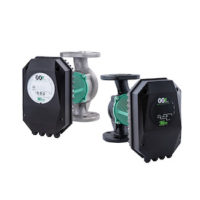
Taco’s new VR Series high-efficiency ECM cast iron or stainless steel circulators offer a wide range of low, medium or high head options in sizes from 1/3 – to 2-HP. Easy, intuitive settings and operation will appeal to installers for a broad range of uses, including HVAC, hot water recirculation and NSF commercial hot applications Read more
Taco’s new VR Series high-efficiency ECM cast iron or stainless steel circulators offer a wide range of low, medium or high head options in sizes from 1/3 – to 2-HP. Easy, intuitive settings and operation will appeal to installers for a broad range of uses, including HVAC, hot water recirculation and NSF commercial hot applications.
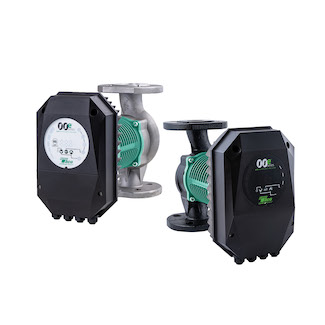 00e VR circulators provide an easy-to-program pump interface with real-time feedback. Modbus, BACnet, 0-10Vdc + pulse width modulation (PWM) are standard. The circulators provide 62 feet max head and up to 320 GPM flow. They are NSF/ANSI 61 + 372 commercial hot certified.
00e VR circulators provide an easy-to-program pump interface with real-time feedback. Modbus, BACnet, 0-10Vdc + pulse width modulation (PWM) are standard. The circulators provide 62 feet max head and up to 320 GPM flow. They are NSF/ANSI 61 + 372 commercial hot certified.
The circulators are also equipped with ASHRAE’s 2019 Software Innovation Award-winning Taco Tags, providing vital product/application information instantly to phones or other mobile devices. Even the molded insulation shell is included.
For more information, visit www.TacoComfort.com
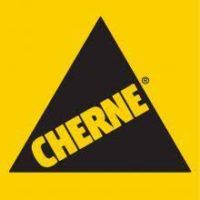
The website is designed to best support customer needs, optimizing user-experience and convenience Cherne Industries (Cherne), the industry-leading manufacturer of pipe plugs and testing equipment and part of the Oatey Co. family of companies, has launched its new website, CherneInd.com — a robust, easy-to-use hub for Cherne product information, customer support and helpful application resources Read more
The website is designed to best support customer needs, optimizing user-experience and convenience
Cherne Industries (Cherne), the industry-leading manufacturer of pipe plugs and testing equipment and part of the Oatey Co. family of companies, has launched its new website, CherneInd.com — a robust, easy-to-use hub for Cherne product information, customer support and helpful application resources.
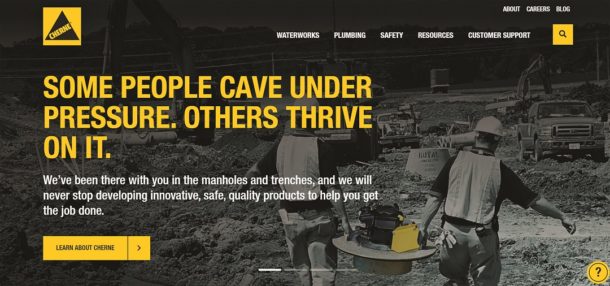
The new website houses the brand’s full product catalog, allowing customers to search more than 700 Cherne products, including each product’s specifications, key features, FAQs and safety/instruction manuals. In addition to this technical information, as well as case studies and blogs, the website hosts online training opportunities and detailed, how-to videos.
The Cherne website is mobile-friendly and includes sophisticated navigation with enhanced functionality, making it simple for users to find the specific product they need across both the Waterworks and Plumbing categories. Visitors seeking additional help or information can also communicate in-real-time with a Cherne expert using the “Ask a Tech” functionality, conveniently located at the yellow question mark icon in the bottom right corner of each webpage.
“We’re thrilled to debut the new Cherne website,” says Katherine Lehtinen, Senior Vice President of Brand and Digital Marketing at Oatey. “Not only does it allow us to better serve and connect with the waterworks and plumbing contractors who rely on our products, but it also gives us an opportunity to share our story and reinforce a mission that’s so important to us — developing the best pipe plugs and testing tools to ensure safety and efficiency at jobsites across the globe.”
To explore Cherne’s new website and product catalog, go to CherneInd.com.
ABOUT CHERNE INDUSTRIES
Part of the Oatey Co. family of companies, Cherne Industries (Cherne®) is the industry-leading manufacturer of test plugs and testing equipment for residential, commercial, industrial and municipal piping systems. Based out of its state-of-the-art headquarters in Shakopee, Minn., Cherne’s products are manufactured with an unwavering commitment to safety and quality.
Available via Oatey Co.’s distribution network throughout North America and through partner distribution on every continent, Cherne products are relied upon by residential and commercial contractors, as well as industrial and municipal engineers, worldwide.
For more information, visit www.CherneInd.com, call 1-800-843-7584 or follow Cherne on LinkedIn.
ABOUT OATEY CO.
Since 1916, Oatey has provided reliable, high-quality products for the residential and commercial plumbing industries, with a commitment to delivering quality, building trust and improving lives. Today, Oatey operates a comprehensive manufacturing and distribution network to supply thousands of products for professional builders, contractors, engineers and do-it-yourself consumers around the world.
Oatey is based in Cleveland, Ohio, and has locations in the United States, Canada, Mexico and China. For more information, visit www.oatey.com, call (800) 321-9532 or follow Oatey on Facebook, Twitter, LinkedIn or Instagram

Peterman Brothers of Greenwood, Indiana has been named the 2021 Bryant Dealer of the Year, the highest honor a Bryant dealer can receive. Each year, this award recognizes the company whose hard work, expertise and business acumen have helped them to stand out as a leader in the industry. Bryant, a leading supplier of heating Read more
Peterman Brothers of Greenwood, Indiana has been named the 2021 Bryant Dealer of the Year, the highest honor a Bryant dealer can receive. Each year, this award recognizes the company whose hard work, expertise and business acumen have helped them to stand out as a leader in the industry. Bryant, a
leading supplier of heating, ventilating, and air conditioning (HVAC) equipment, is a part of Carrier Global Corporation (NYSE: CARR), the leading global provider of healthy, safe and sustainable building and cold chain solutions.
“Being named as the 2021 Bryant Dealer of the Year means that we are doing
things the right way,” said Chad Peterman, Owner and President, Peterman Brothers. “It is not what we do, but how we do it. We are committed to providing our people and customers with the best customer experience possible.”
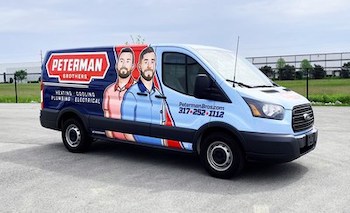
Peterman Brothers has been solving plumbing, heating, and cooling issues of the central Indiana community since 1986 when Pete Peterman started the company in his garage. Since its humble beginnings, the company has grown to employ over 300 people today. Two of those employees include Pete’s sons, Chad and Tyler. Both grew up around the business and have taken on numerous responsibilities. Chad is the oldest and in his role as Owner and President, he is responsible for creating and executing the company’s vision and long-term strategy. Chad’s younger brother, Tyler, oversees all install operations. Peterman is now a complete family affair with all the Petermans involved in the day-to-day operations of the company. In addition, Peterman
Brothers is a two-time Bryant Medal of Excellence winner.
“Bryant dealers continue to raise the bar in our industry and are among the best in the business,” said Justin Keppy, President, NA Residential & Light Commercial, Carrier. “Our 2021 Dealer of the Year, Peterman Brothers, exemplifies the values and commitment that the Bryant brand has come to represent in its more than 115-year history. Its entire team embodies all that is necessary to run a successful business, and the company serves as an example to the industry for how an organization should treat its customers and the community in which it operates.”
Bryant selected its 2021 Dealer of the Year from 22 Medal of Excellence winners, comprised of Bryant Factory Authorized Dealers throughout North America. The candidates were judged on overall sales growth, high-efficiency and indoor air quality equipment sales, customer satisfaction and participation in dealer programs and promotions.
The 2021 Medal of Excellence Winners are:
- Advanced Comfort Control Standish, California
- Affordable Heating & Air Sylacauga, Alabama
- AGS HVAC Services Westport, Massachusetts
- Air Tech Heating, Inc. Fond du Lac, Wisconsin
- Allen Service Fort Collins, Colorado
- Comfortemp Lemont, Illinois
- D. McKeon Heating & Air Conditioning Kennesaw, Georgia
- Elite Mechanical Systems Windom, Minnesota
- Estes Heating and Air Conditioning Theodore, Alabama
- First Call Heating & Cooling, Inc. Racine, Wisconsin
- GAC Services Gaithersburg, Maryland
- IERNA’S Heating & Cooling, Inc. Lutz, Florida
- Mert’s Heating & Air Conditioning Co. Steger, Illinois
- One Hour Heating and Air Conditioning Wilmington, Delaware
- Peterman Brothers Greenwood, Indiana
- Pronto Heating & A/C, Inc. Edina, Minnesota
- Robin Aire Service Company Wixom, Michigan
- Rock Plumbing, Heating & Air Englewood, Colorado
- Rose Heating & Air Conditioning Urbana, Illinois
- Sanders & Johnson, Inc. Denver, Colorado
- Scott’s Heating & Air Conditioning Longwood, Florida
- Welsch Heating & Cooling Saint Louis, Missouri
For more information about Bryant and to find a dealer near you, visit
www.bryant.com.

When you have your own business, you always need to make sure that you’re doing what you can to get more customers. Unless you’re an established business and you’re starting to get a lot of referrals from customers, it can feel like you’re waiting to grow. But, you will find that you are able to Read more
When you have your own business, you always need to make sure that you’re doing what you can to get more customers. Unless you’re an established business and you’re starting to get a lot of referrals from customers, it can feel like you’re waiting to grow. But, you will find that you are able to get to where you want to be as long as you know to put the work in. The thing is, you might be wondering exactly what it is that you need to do.
That can often be the trickiest thing is usually knowing exactly what it is that you need to do to stand out in the first place. Your expertise is your trade and not marketing. So it’s not always easy to know what you need to do to get interest and promote what you do. Let’s take a look at what you need to do.
Know Your Customer
Before you start, you have to know your customer. It’s a good idea for you to think about who you’re targeting and who will buy from you so that you know how to reach them and get them to find you.
Advertise Locally
Then, you’ll want to try and advertise locally in your area so that people can find you. From local flyers and adverts in local papers to having banners and sign writing on your vehicles. This will show off what you do and get people to take notice.
Build A Great Website
You might then want to think about working on your website. It can be a great way for customers to find you. You’ll also want to work with an SEO company to help you to rank well on Google. So when people are searching for your business you’ll come up and they’ll reach out to you.
Use Social Media
From here, you’re also going to want to make sure that you’re using social media too. When harnessed well, social media can really make a difference in your small business. It can allow new people to find you and see what you do, it can gain loyal customers, and gain more business. So make sure that you’re shouting about what you do.
Test And Retest
The thing about marketing is that you can’t just work on one thing once and hope for the best. It’s all about testing, retesting and optimizing what you’re doing. It’s so important to look at your data, see what is performing on your website and what’s driving you traffic and getting you customers and then focusing more on that. Just trying new things and ideas is all it takes for you to start getting results.
Marketing your business can be such a hard thing to do when you’re not really sure what you need to do to make it happen. But the good news is, you only have to focus on a few things. When you’ve worked through these ideas, you should start to get a bit of traction for your business.
